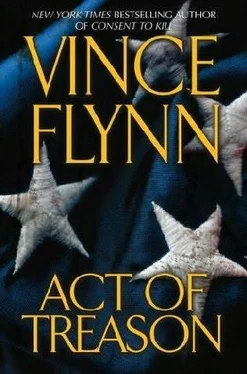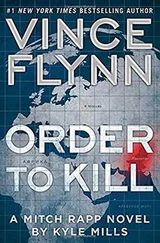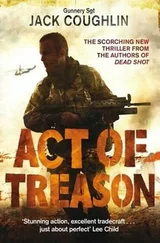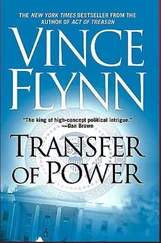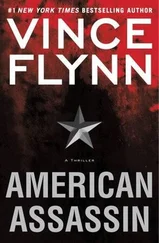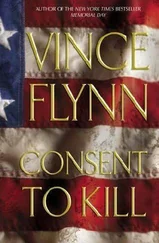Ross stood motionless for a few seconds, his perma-smile plastered across his face. Slowly he turned and watched his entourage move out of the way for Stealey. Ross kept smiling even though, inside, his temper was raging. Stokes may have found the woman’s outspokenness refreshing, but Ross found it downright disrespectful.
Garret came forward and in a quiet voice asked, “What did she say?”
Ross, smiling like a ventriloquist’s dummy, said, “I’ll tell you later.” He turned and walked into the conference room, finding the attorney general and two of his deputies sitting at the far end of a massive conference table. Stokes and the other two men quickly got to their feet when they saw Ross.
“No…no,” said Ross after they were well out of their chairs. “Don’t bother getting up.” He gestured in a downward motion with his hands. “I just wanted to drop in and congratulate you on your victory. President-elect Alexander asked me to personally thank you for catching the man responsible for his wife’s death.”
Attorney General Stokes looked awkwardly to his left and then his right. The three men all shared an uncomfortable look.
“The case might not be as strong as we were originally led to believe.”
Ross swore rumors spread quicker in Washington, DC, than any other city in the world. There were so many reporters, so many political hacks on both sides of the aisle and far too many people who strived to prove their self-worth by acting like they were in the know. The news of the arrest sent shock waves through DC. The story was simply too big to keep a lid on. President Hayes made it clear that he wanted Langley to finally get some credit. The DOJ and FBI could ride the CIA’s coattails, but Langley deserved the lion’s share. People at the three agencies began leaking almost immediately. By the time the press conference took place on Monday morning half the town knew what was going on. It all sounded like a major victory for the CIA.
By mid-afternoon, though, the rumor mill began churning out a different story. It started as a whisper. There were some problems with the case. By evening the whisper had grown into a murmur. Suddenly, the three agencies were tight-lipped again, which was always a sign that something was wrong. Now this morning, the press was on the offensive, burning up the phones trying to get sources to confirm the worst-case scenario, which was that the CIA had grabbed the wrong guy. Garret, never one to miss an opportunity, went into full spin mode. He quickly drafted a battle plan, but cautioned Ross that they needed to go over to Justice and find out what was fact and what was fiction before they took a hard position.
So Ross found himself playing dumb and looking to an old colleague from the Senate for confirmation. “What’s wrong?”
“Ah…” Stokes sighed, “I’m not even sure I know where to begin.”
“I’m a little miffed here, Martin. Last I heard, this thing was a slam dunk.”
“That’s what I was told as well, but now some problems have popped up. Some potentially embarrassing problems.”
“Such as?”
“Such as…the man we have in custody might not be the right guy.”
“Excuse me?” Ross’s eyes got wide and he thrust his chin out.
“The man in question is a Greek citizen. He has proclaimed his innocence since the moment he was handed over to the FBI on Sunday afternoon.”
“This wouldn’t be the first time a criminal claimed he was innocent.”
“Tell me about it. If it was just that I wouldn’t give it a second thought, but there’s more, or should I say less.” Stokes shared an uncomfortable look with his two deputies. “For starters the Greek ambassador is filing an official letter of protest that I’m told will be delivered to the State Department this afternoon.”
“Why?”
“They are claiming that the CIA kidnapped this man.”
“Who really cares?” Ross had thought this one through. “If this is the man who attacked the motorcade, the Greeks can file all the damn letters of protest they want.”
“The problem is, we’re not sure this is the right guy.”
“What do you mean, you’re not sure?”
“We were told this is the guy. We were told there was hard evidence against him.”
“And?”
“We’ve seen nothing.”
“What do you mean, you’ve seen nothing?”
Stokes let out a frustrated sigh. “On Sunday afternoon we received a prisoner. The prisoner was wounded. He’d been shot four times. Once in each knee and once in each hand.”
“Tortured?” Ross asked.
“I’d say so.” Stokes looked to his deputies for a consensus and both men nodded.
“Has the man admitted to anything?”
“Not to us, but the CIA claims he confessed during transit from Cyprus back to the States.”
“While he was being tortured,” Ross said with his best, you’ve got to be kidding me look.
“That is what he’s claiming.”
“The suspect?”
“Yes.”
“Shit. Do you have a tape of the confession?”
“No.”
“Why not?”
“We’ve been asking the CIA for over a day, and have gotten nowhere.”
Ross cocked his head to the side. “Excuse me?”
“I assume you’ve heard it was Rapp who found this guy.”
“I have heard that rumor.”
“Well, it’s true. The problem is no one knows where he is. This was his op. He was the one who found him.”
“So what’s the problem?”
“We don’t have a single shred of evidence in our possession that can connect this guy to the crime. The prisoner has submitted to and passed a lie detector test, and the Greek government has no record of him leaving Cyprus during the time of the attack. The suspect claims to have witnesses that will swear to the fact he was at home, on Cyprus the day of the attack.”
Ross turned to look at Garret who in his typical unvarnished manner blurted out, “It sounds like Rapp grabbed the wrong guy.”
The three men from the Justice Department all shared uncomfortable looks and then Stokes said, “No one is willing to say it yet, but that’s our worst fear.”
“For Christ’s sake,” Ross swore. “Have you told the president any of this?”
“I’m heading over to the White House for lunch. I’ll break it to him then.”
“What about Josh?”
Stokes shook his head. “Maybe you could break the news to him.”
Ross acted like he didn’t want to, but he did. It was an opportunity to prove to his running mate how well connected he was. “I’m having lunch with him today. I’ll tell him then. In the meantime, you’d better find Rapp. We don’t want our new administration to start out under the cloud of scandal.”
Ross had intentionally used the first person plural possessiveour. Stokes was a useful man in that he was both politically hungry and well liked. For months they’d been dangling the possibility of carrying him over into the next administration. They’d even hinted that there might be something bigger on his horizon.
BALTIMORE, MARYLAND
The warehouse was old. Built during the early days of WWII, it housed crucial supplies for Britain. It was all part of the Lend-Lease program that FDR had fought so hard for. Once the United States entered the war, the brick building doubled in size and became a beehive of activity until the Nazis surrendered. After the war U.S. Steel moved in and the Marshall Plan kept things busy as the U.S. continued to ship supplies to help rebuild Western Europe. Business remained good for U.S. Steel until the mid-seventies, and then things really slowed down. The entire area fell into a long cycle of neglect and disrepair.
When Scott Coleman first looked at the place, there wasn’t a window that wasn’t broken, the roof leaked, and a series of bad tenants had come and gone without bothering to take their junk with them. For most people the smell of urine and years of neglect was hard to get past, but Coleman, who had traveled the world with the U.S. Navy, was used to such things. Where others saw nothing but neglect, Coleman saw an opportunity. As a friend in the Navy used to say, “They aren’t building oceanfront property anymore.”
Читать дальше
